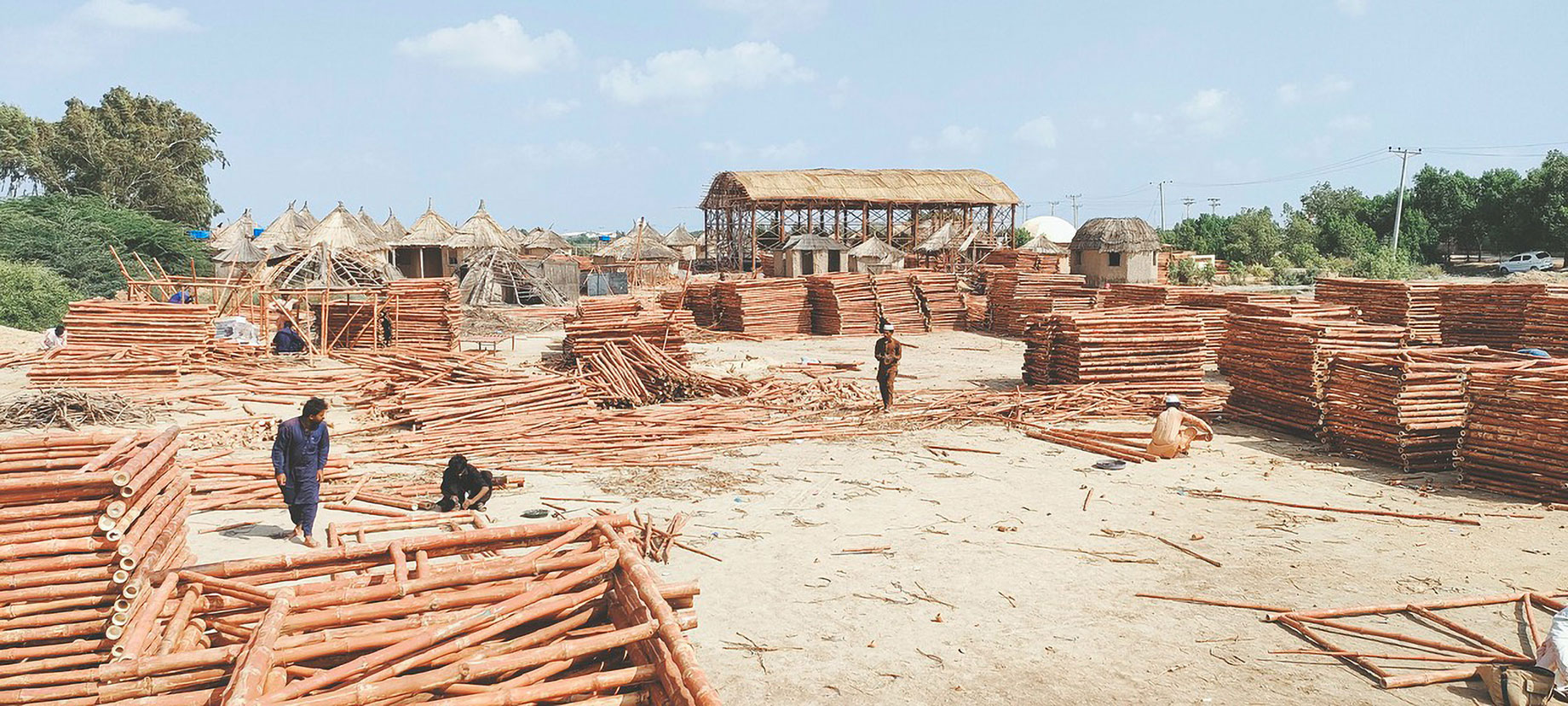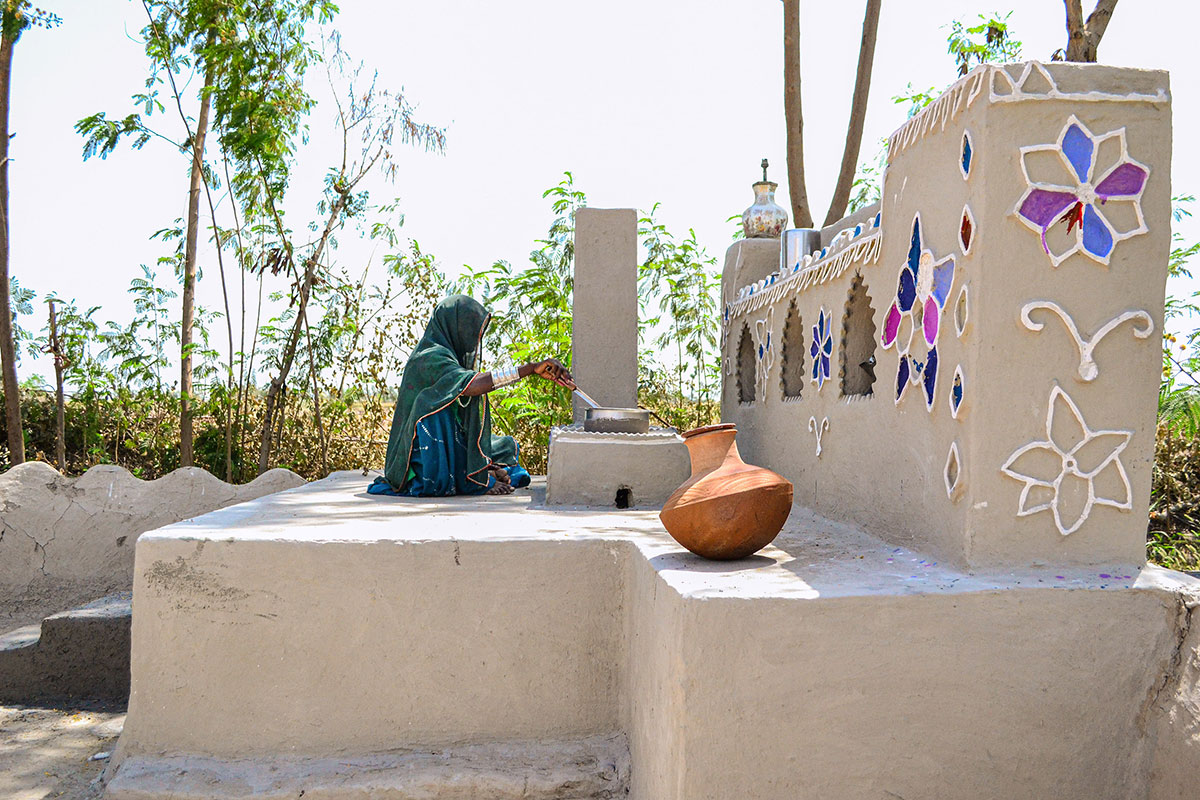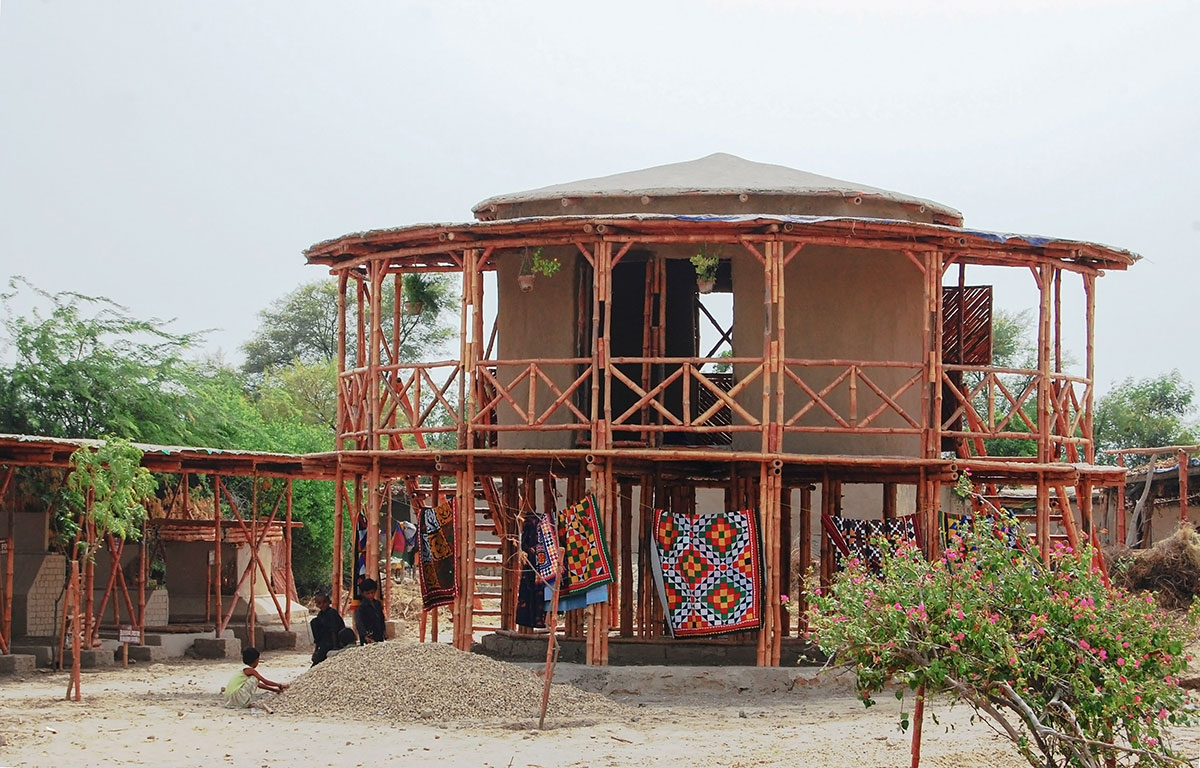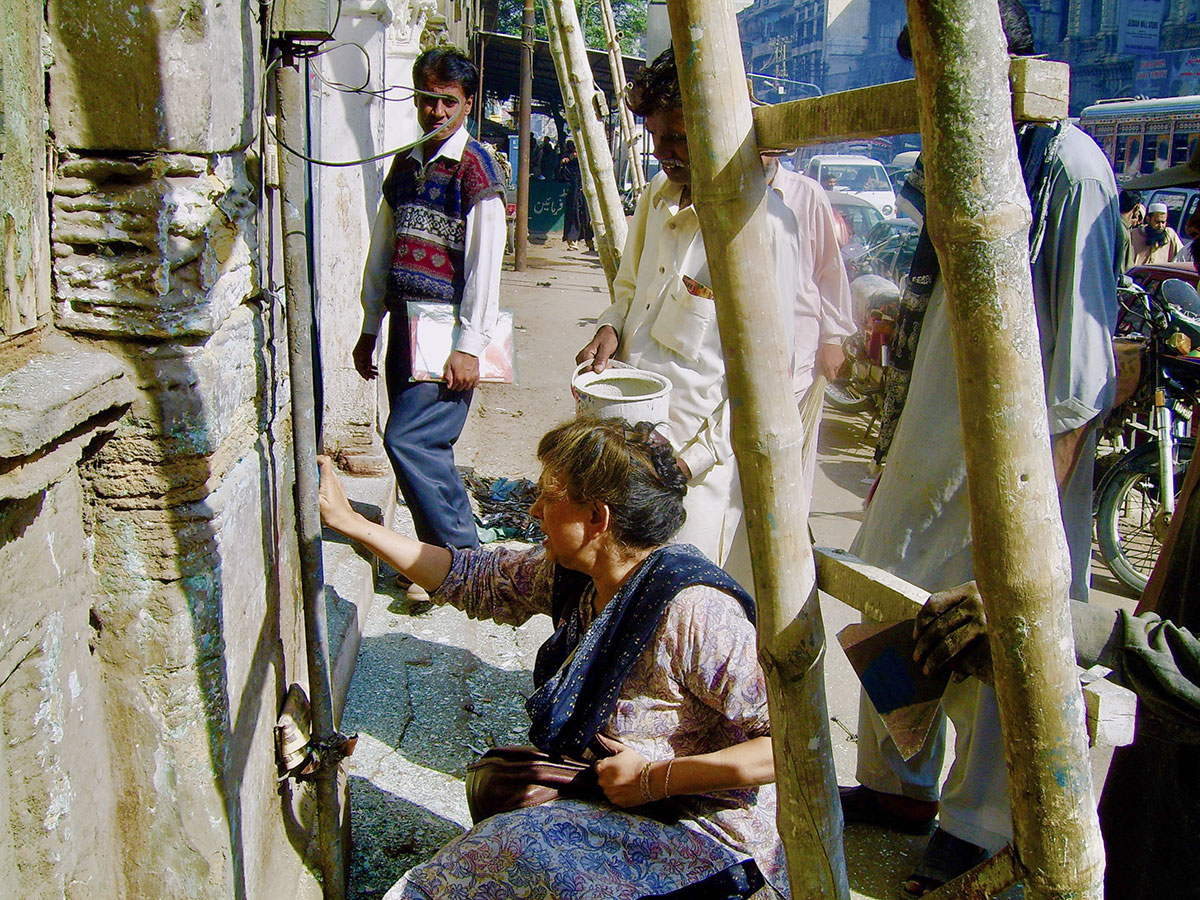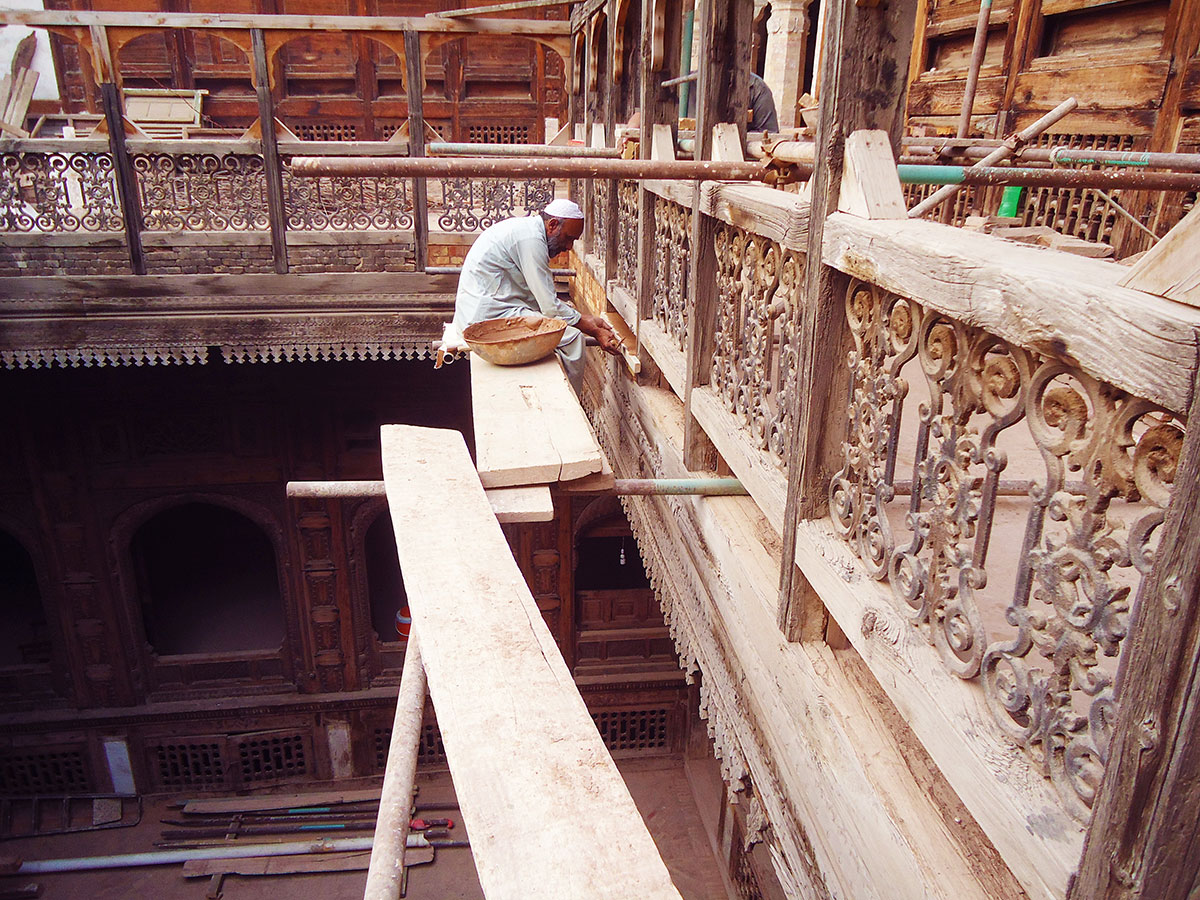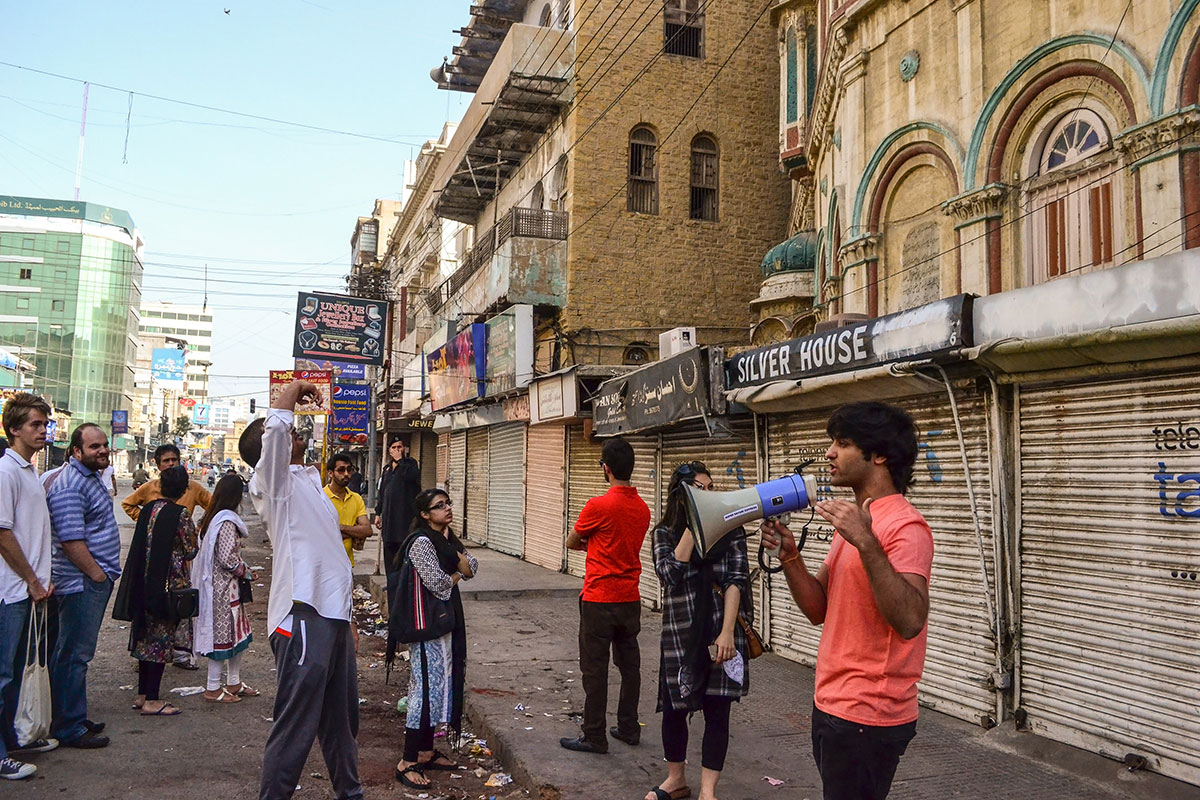ARCHITECTURE: Yasmeen Lari-Architecture For The Future
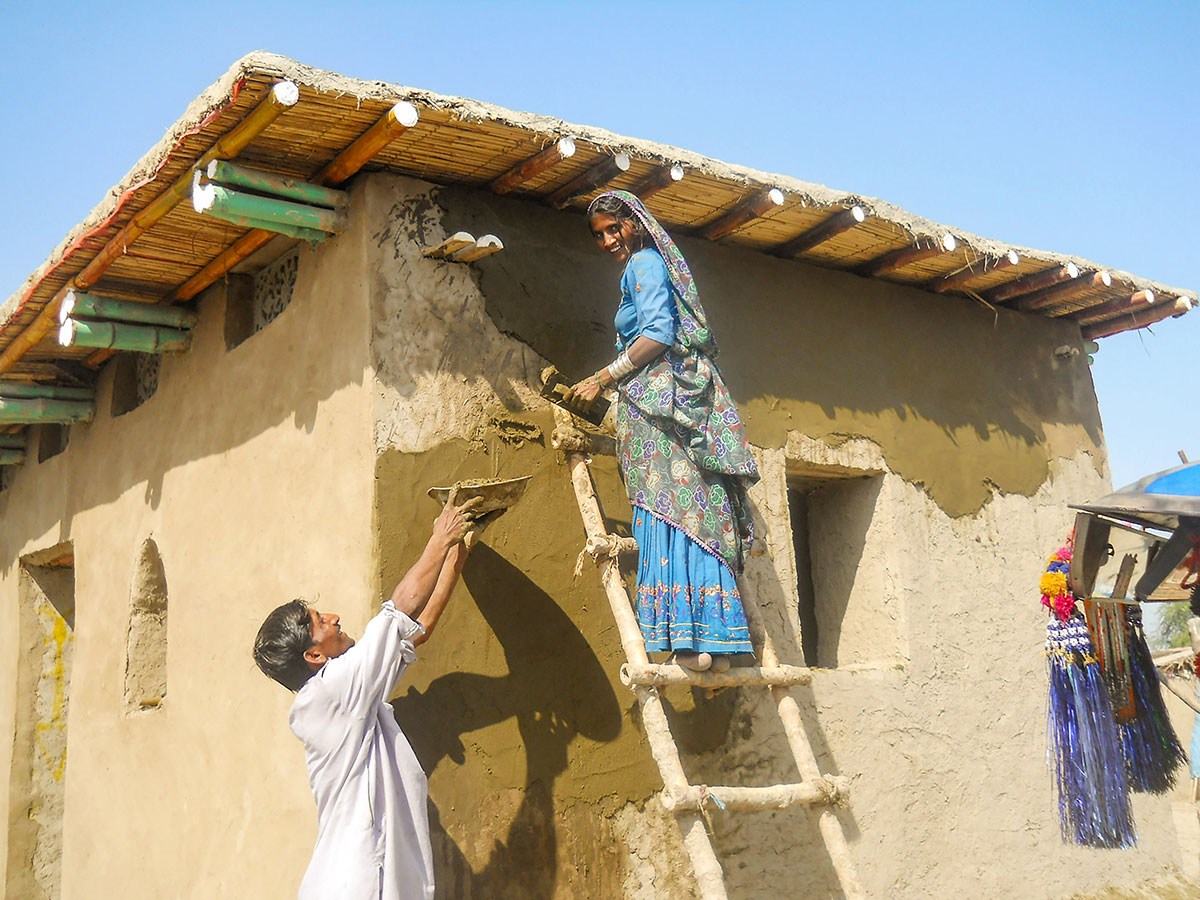 Yasmeen Lari is the first female architect in Pakistan and winner of the Jane Drew Prize 2020. She trained as an architect in the UK and opened her practice in Pakistan at the age of 23, over the next 40 years firmly establishing herself as one the regions leading design architects with a series of startling brutalist buildings. Retiring from mainstream practice she has spent the last twenty years focused on humanitarian architecture, focusing on low cost solutions to regional problems and the role of women in leading change.
Yasmeen Lari is the first female architect in Pakistan and winner of the Jane Drew Prize 2020. She trained as an architect in the UK and opened her practice in Pakistan at the age of 23, over the next 40 years firmly establishing herself as one the regions leading design architects with a series of startling brutalist buildings. Retiring from mainstream practice she has spent the last twenty years focused on humanitarian architecture, focusing on low cost solutions to regional problems and the role of women in leading change.
By Efi Michalarou
Photo: Architekturzentrum Wien Archive

The exhibition “Architecture for the Future” highlights Yasmeen Lari’s extraordi-nary work for the first time, from the modernist beginnings of the 1960s, through her time as a star architect, to current humanitarian architecture based on decolonization and decarbonization. Today, Lari practices architecture as climate activism to uphold the rights of people and nature alike. Using previously unpublished photos, drawings, and documents, the exhibition conveys the architect’s impressive career from international modernism to zero-carbon architecture. Born in 1941 in what is today Pakistan, still under British rule back then, Lari received her architectural training in England. In 1964, she was the first woman to open an architecture office in Pakistan. She designed Pakistan’s first social housing complex in Lahore and landmark buildings such as the Pakistan State Oil headquarters in Karachi. Her own house, an icon of Brutalism, brought her international fame. At the same time, she began to investigate local building traditions. Together with her husband, Suhail Zaheer Lari, she founded the Heritage Foundation of Pakistan and researched and saved the built heritage of her country, the two World Heritage Sites in Makli and Lahore, as well as everyday buildings. Since 2005, Lari has been redefining architecture as climate activism. In Pakistan, one of the countries hardest hit by the climate catastrophe, she initiated the world’s largest zero-carbon self-build movement. Tens of thousands of flood- and earthquake-proof houses, sanitary infra-structure, smokeless stoves, and community facilities made of zero-carbon materials such as bamboo and mud were self-constructed according to plans by Yasmeen Lari—by people who had lost their homes, many of them among the landless poor. This work has also garnered in-ternational awards in recent years: In 2016, Lari received the Fukuoka Art and Culture Prize, in 2020, the Jane Drew Prize, and, in 2021, an honorary doctorate from the Politecnico di Milano. She currently holds a visiting professorship at the University of Cambridge. Based on Yasmeen Lari’s work, the exhibition shows how the relationship between architecture and the future has been changing. divided in 9 sectors:
Karachi Modernism: Postcolonial Living: Yasmeen Lari belongs to the first generation of postcolonial architects in Pakistan, which has existed as an independent country since 1947 with the end of British colonial rule and the Partition of India. For Lari’s generation, building meant nation-building: new buildings, infrastructure, neighborhoods, and entire cities were planned and erected. Lari’s own house in Karachi, completed in 1973 and where she still lives and works today, is regarded as an international icon of Brutalism. Housing Equality: Innovating Modernism and Tradition: In the 1970s, the Pakistan People’s Party (PPP), founded by Zulfikar Ali Bhutto, promised roti (bread), kapda (cloth), and makaan (shelter) to all. Yasmeen Lari was commissioned to design social housing in Lahore as part of the People’s Housing Programme. For the Angoori Bagh project with 787 residential units, she developed approaches that would be decisive for her later work: public forums; focusing on women’s needs; using local building materials; training unskilled workers in the construction process; building in a climate-conscious, resource- saving, and cost-effective manner. Icons for a Karachi Boulevard: In the 1980s and 1990s, Lari realized large, prominent buildings in Karachi, such as the FTC – Finance and Trade Centre, the headquarters of Pakistan State Oil, and the Amro Bank. Lari describes this phase as her ‘star architect’ period. In 2000, she decided to cease this architectural production determined by capital, power, and clients. At the same time, these representative large-scale buildings also give something back to urban society: Communicative platforms and green atriums create generous spaces for the users, whom Lari considered as the actual clients to whom architecture bears responsibility.
Material Ecologies: Building the Local: Based on the work of others, such as the Egyptian architect Hassan Fathi, Lari began to explore mud as a building material in the early 1970s. Later, in her humanitarian work, mud, lime, and bamboo became the “Lari materials.” She responds to the global need for living space and infrastructure with low-tech series production from low-carbon materials. A major concern for Lari is to further develop this knowledge internationally in architectural teaching. Heritage as Future: Decolonizing Legacies: After her return from Great Britain, Lari began to study Pakistan’s built heritage and local building traditions. In 1980, she co-founded the Heritage Foundation of Pakistan with her husband, Suhail Zaheer Lari. She sees the built cultural heritage as an opportunity to preserve the tradi-tions of different religions and ethnic groups in equal measure. She has worked on two UNESCO World Heritage Sites in Pakistan, the Lahore Fort and the Makli Necropolis. Lari innovatively applies her knowledge of local building traditions in her climate activist humanitarian work. Building Policies, Laws, and Institutions: For Yasmeen Lari, architecture is much more than buildings. In order for architecture to be able to help shape the future, it needs institutions and laws in which it is also actively involved, from the establishment of the Pakistan Council of Architects and Town Planners to the first monument protection law for urban buildings in Sindh Province. Although Lari’s built work is located entirely in Pakistan, her networks are international. In 1976, she was one of the speakers in the forum of the legendary UN Habitat Conference on Human Settlements in Vancouver.
The Architect as Humanitarian Worker: Yasmeen Lari has been a ‘humanitarian worker’ since the 2005 earthquake, which registered 7.6 on the Richter scale and left millions homeless in Afghanistan, India, and Pakistan. The catastrophic floods in Pakistan in 2010 and 2022 led Yasmeen Lari to see architecture for the future as climate activism. Dignified living conditions and the preservation of the environment are two of the issues most important to her. She works with the populations most endangered by the climate catastrophe in Pakistan. A Zero-Carbon Revolution in Architecture: Today, the decarbonization of architecture is Lari’s central concern. The construction sector, one of the largest CO2 emitters worldwide, is accelerating the climate catastrophe. Construction must become more disaster-resistant and contribute to climate protection. For over a decade, Lari has been developing ways of working towards humanitarian and climate-activist architecture: low-cost, zero-waste, low-carbon materials. Instructions for self-building are given through on-site training, but also by digital means of communication, such as the Zero Carbon Channel started in 2020 during the pandemic. Essentials for Life: Yasmeen Lari sees architecture as having a duty to develop feasible, affordable, and sustainable solutions for vital infrastructure and, in particular, to create livelihoods for women. According to Lari, this includes shelter, cooking, drinking water, and toilets. To this end, Lari has further developed traditional architecture: The smokeless Pakistan Chulah (Pakistani stove) made of mud and lime needs only half as much fuel as traditional stoves. This illustrates that local knowledge leads to better-performing innovations than international aid programs that provide factory-made metal stoves.
Photo: Self-built, zero carbon, and flood-resistant houses, Sindh Province, Pakistan; tens of thousands have already been implemented.photograph: Archive Yasmeen Lari
Info: Curators: Angelika Fitz, Elke Krasny, and Marvi Mazhar, Architekturzentrum Wien, Museumsplatz 1, Vienna, Austria, Duration: 9/3-16/8/2023, Days & Hours: Daily 10:00-19:00, www.azw.at/
